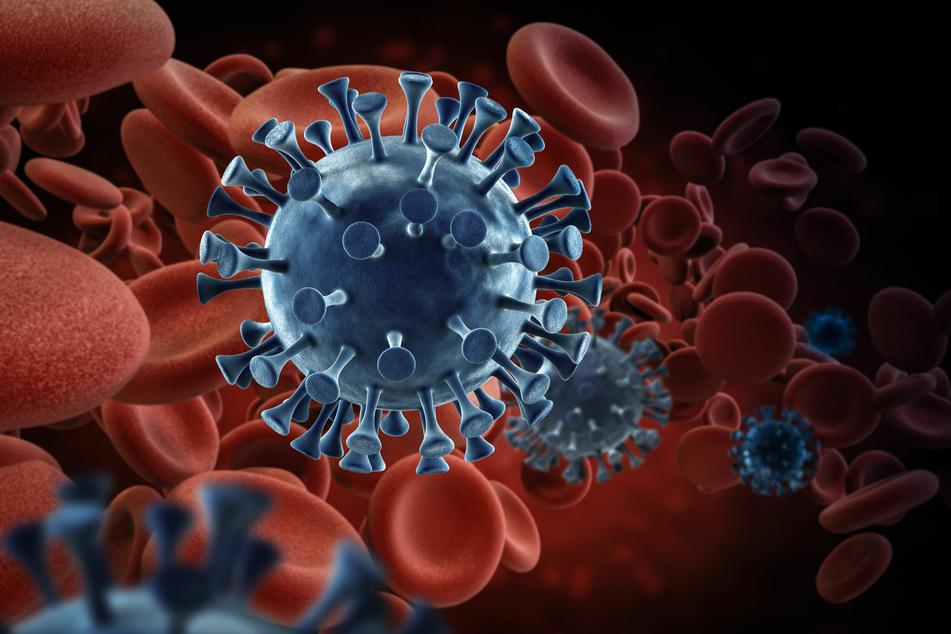"My wife started to arrange a funeral five times": British man tests positive for Covid for 305 days
Bristol, UK - A 72-year-old man had Covid-19 for more than 10 months in what experts have said is the longest-ever recorded persistent infection with the virus.

Academics have described how the man, named by the Guardian as retired driving instructor Dave Smith, from the English city of Bristol, continuously tested positive for 305 days.
Smith, who had conditions which led to him having a compromised immune system, is alive and well and now tests negative for the virus.
He told the Guardian: "Whenever I went bad, I went really bad – down to death's door. My wife started to arrange a funeral five times."
He added jokingly: "I called all the family in to make my peace with them. I wish I'd kept my mouth shut now."
His case is to be presented to the European Congress of Clinical Microbiology & Infectious Diseases (ECCMID) in July.
An abstract, which is to be presented to the conference, describes how Smith's infection is thought to be the "longest infection recorded in the literature."
Academics from the University of Bristol, North Bristol NHS Trust and Public Health England, said Smith was admitted to hospital in May 2020 with a cough and fever. A PCR test confirmed he had Covid-19.
He was discharged after eight days but he had "significant breathlessness and went on to have interspersed acute deteriorations associated with fever" which required further hospital admission in August, September, October and December.
The experts noted that in December 2020 a trial of daily remdesivir therapy was discontinued after 17 days had no effect. He later received treatment with monoclonal antibodies casirivimab and imdevimab. Smith was successfully treated with the laboratory engineered antibodies, the University of Bristol said.
It added that his health improved dramatically, and the virus was not detected in PCR tests 45 days after the combined treatment.
Almost a year of testing positive

The combination of antibodies, by pharmaceutical firm Regeneron, have since been shown to save the lives of some of the sickest Covid-19 patient in a clinical trial, but the treatment regime is yet to be approved for use in the UK.
"We present a case of persisting Sars-CoV-2 infection in an immunocompromised gentleman who was hypogammaglobulinaemic and lymphopenic with evidence of ongoing infection after 286 days, the longest infection recorded in the literature to our knowledge," the academics wrote in the abstract.
"This case demonstrates the potential chronicity of Covid-19 infection in immunocompromised individuals," the authors wrote.
"Treatment options are urgently needed both for the care of individual patients but also for public health given the likelihood of the emergence of vaccine resistant variants in such clinical settings."
Smith no longer tests positive some 305 days after first infection, academics have told conference officials.
They said he reported symptoms for six weeks before his first test so they suspect infection was actually longer – meaning that he could have continuously tested positive for the virus for almost a year.
Smith had a history of a condition called hypersensitivity pneumonitis, which meant he had lung disease causing inflammation of the lung tissue and chronic lymphocytic leukaemia - a type of cancer that affects the white blood cells and tends to progress slowly over many years.
Information about the case, also published on the preprint server medRxiv.org, detail how the virus evolved during the infection, acquiring mutations that are present in variants of concern (VOC)of the virus which causes Covid-19.
The paper suggests immune-deficient people are vulnerable to chronic persistent Sars-CoV-2 infection.
More research needed to determine the causes and effects of prolonged infection

Experts said the findings also raise the urgent need to conduct trials of, and improve access to, treatments capable of eradicating the virus from continually infected people.
"There are increasing reports of immunocompromised people who are repeatedly infected with Sars-CoV-2 for longer than six months," said Dr Andrew Davidson, a virologist in Bristol's School of Cellular and Molecular Medicine, a member of the 'G2P-UK' National Virology Consortium and co-author on the paper.
"As the virus can evolve in this group, and develop mutations that are present in emerging VOCs, it is key that we monitor the evolution of the virus in these individuals and effective treatment options are available to eliminate the virus."
Dr Ed Moran, consultant in infectious diseases at North Bristol NHS Trust and co-author on the paper, added: "It is wonderful that we were able to help this individual.
"Whilst such cases are rare, there will be a number of people across the country in similar situations.
"The small numbers make it difficult to perform trials of experimental therapies. However, it is important that we find a way to access and develop treatment regimens for these individuals, both for the wellbeing of the individual and to protect public health."
Academics are conducting further research into "persistently infected immunocompromised individuals."
Other researchers have previously detailed a case which lasted for 85 days.
A number of people have spent long periods of time in hospital after being admitted with Covid-19. But this does not necessarily mean that they will test positive for the whole length of their stay.
Kate Garraway's husband Derek Draper, a 53-year-old former political adviser, was in hospital for a year after being admitted with coronavirus symptoms and placed in a coma.
And Jason Kelk died on Friday following his decision to withdraw his treatment after more than 14 months in intensive care.
Sky News reported that Kelk (49) had spent more than a year in intensive care at St James' Hospital in Leeds after contracting coronavirus in March 2020.
Cover photo: 124RF/ambrozinio